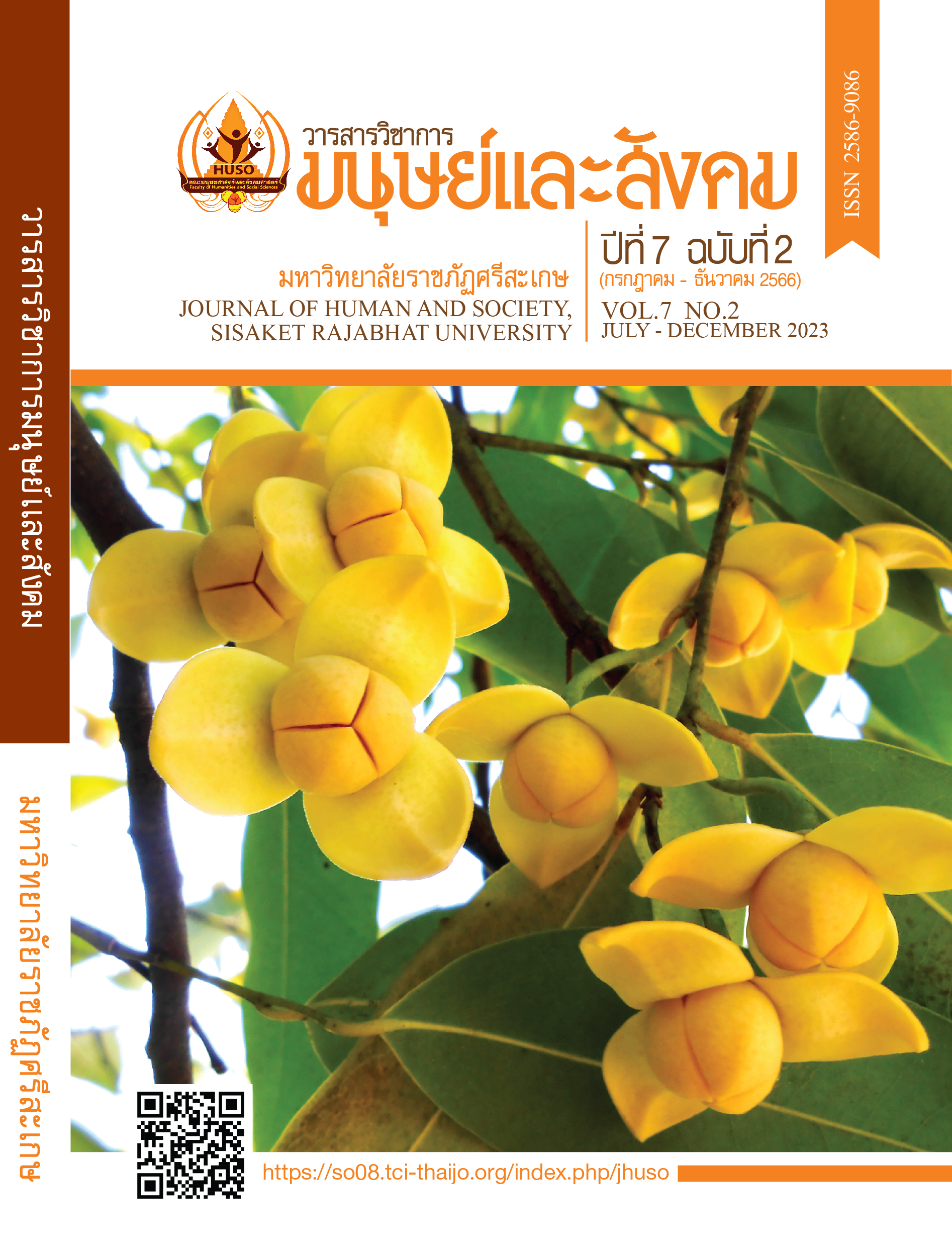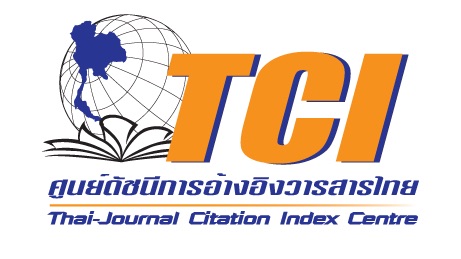Guideline of Value and Earning Potential on Cultural Hand-Woven Cloth at Paoy Char village, Phnom Srok, Banteay Meanchey, Cambodia
Keywords:
Value and Earning Potential, Hand-Woven Cloth, Paoy Char, CambodiaAbstract
This study investigated the production, sales, and earnings potential of culturally hand-woven cloth in Paoy Char village, Phnom Srok, Banteay Meanchey, Cambodia. The research revealed that silk and cotton were
the primary materials used in production, employing traditional techniques throughout the manufacturing process. The distribution and pricing strategies were categorized into two types: those established by agencies and those by local groups. Furthermore, the product design aspect was classified into three distinct types. Earnings potential demonstrated variation among different groups and was contingent upon various factors, including organizational affiliations and marketing endeavors. In sum, the study suggests that these groups should prioritize enhancements in production processes, product design, distribution networks, and marketing campaigns to amplify their potential for higher earnings.
References
สถาบันวิจัยหม่อนไหม. (2547). การปลูกหม่อนเลี้ยงไหม. โครงการสารานุกรมไทยสำหรับเยาวชน โดยพระราชประสงค์ในพระบาทสมเด็จพระเจ้าอยู่หัว.
สุภางค์ จันทรวานิช. (2550). การวิจัยเชิงคุณภาพทางมานุษวิทยา. สำนักงานพิมพ์แห่งจุฬาลงกรณ์มหาวิทยาลัย.
สารภี วรรณตรง. (2560). การพัฒนาเครือข่ายแหล่งเรียนรู้ผ้าทอมือจังหวัดสุรินทร์ บันทายมีชัยและแขวงจำปาศักดิ์. คณะมนุษยศาสตร์และสังคมศาสตร์มหาวิทยาลัยราชภัฏสุรินทร์.
พรพิธ พัฒนกุล. (2550). ต้นทุนและผลตอบแทนการทอผ้าของกลุ่มสตรีทอผ้า กรณีศึกษาบ้านก้างปลา ตำบลชัยพฤกษ์ อำเภอเมือง จังหวัดเลย. สาขาการศึกษา มหาวิทยาลัยราชภัฏเลย.
ระพีพรรณ แสนกันหา (2551). การพัฒนากลุ่มสตรีทอผ้าตามแนววิสาหกิจชุมชน กรณีศึกษากลุ่มสตรีทอผ้าบ้านเชิงดอย [วิทยานิพนธ์ศิลปศาสตรมหาบัณฑิต]. มหาวิทยาลัยราชภัฏสกลนคร.
วิระศักดิ์ จุลดาลัย. (2548). แนวทางการพัฒนาผลิตภัณฑ์ผ้ามุกเพื่อศึกษาปัญหาที่ส่งผลกระทบให้คุณภาพผลิตภัณฑ์ผ้ามุก ชุมชนวัดสว่างสุวรรณาราม อำเภอเมือง จังหวัดนครพนม. มหาวิทยาลัยราชภัฏพระนคร.
ศิริขวัญ ดวงแก้ว. (2552). แนวทางการจัดการกลุ่มทอผ้าพื้นเมืองบ้านผา อำเภอบ้านไร่ จังหวัดอุทัยธานี [วิทยานิพนธ์ศิลปศาสตรมหาบัณฑิต]. มหาวิทยาลัยราชภัฏนครสวรรค์.
Ministry of Commerce of Cambodia. (2016). Khmer Silk strategy 2016-2020. ASEAN-Japanese Centre.
Falls, S. & Smith, J. (2011). Branding Authenticity: Cambodian Ikat in Transnational Artisan Partnerships (TAPs). Cambridge.
Sokmean, S. (2018). The Revival of Khmer Traditional Hol Pidan. http://sovrinmagazine.com/site/view_article?artid=338 Date of searching 13 Jan 2019
The Bangkok inside editorial team. (2561.). กัมพูชาทำสถิติกินเนส’กร็อมา’ทอมือยาวสุดในโลก. https://www.thebangkokinsight.com/news/world-news/20951/
International trade center. (2016). Cambodia National Silk Strategy 2016-2020. Geneva: ITC.
Downloads
Published
How to Cite
Issue
Section
License
Copyright (c) 2023 Journal of Human and Society, Sisaket Rajabhat University

This work is licensed under a Creative Commons Attribution-NonCommercial-NoDerivatives 4.0 International License.







